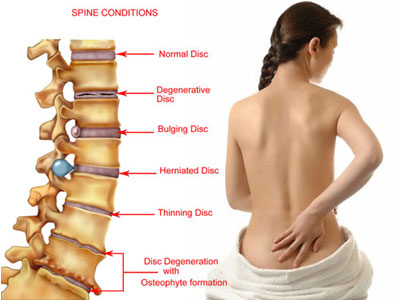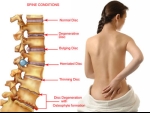
Myth #1: There is a standard "cure" for most causes to back and neck pain.
Fact: Compared to other medical conditions, there are relatively few standardized approaches to diagnosis and treatment of back problems. Spine specialists from various areas of expertise (such as physical medicine and rehabilitation, chiropractic, osteopathic medicine, physical therapy, and surgery) will often disagree on the diagnosis and most appropriate treatment plan for back pain and back problems, and specialists within a discipline will also frequently have different opinions. A few diagnoses for back pain as a result of back a back problem are relatively straightforward (such as a spinal tumor, infection, or fracture) and there is generally more consensus for diagnosis and treatment of these back problems.
Myth #2: Rest is the key to recovery from back pain and back problems.
Fact: The two main reasons bed rest may be recommended for back pain are to reduce pressure on the discs in the spine and to stop the mechanical stresses that are irritating pain receptors. A short period of bed rest may help reduce acute back pain. However, in most instances, more than 1 or 2 days of rest can be detrimental to recovery from back pain, potentially leading to increased pain and other adverse results, such as:
- Muscle atrophy (1% to 1.5% per day)
- Cardiopulmonary deconditioning (15% loss in 10 days)
- Bone mineral loss
- Risk of blood clots
- Loss of wages
- Creating an "illness" mindset.
With that considered, a program of lower back exercises may help limit back pain.
Myth #3: Heat and massage feel good so they must be helping back pain and back problems.
Fact: These therapies can reduce acute back pain in the short-term, but do not provide a long-term solution to back problems. They are used to manage pain during recovery, allowing patients to complete a rehabilitation program and participate in daily activities.
Myth #4: Long-term pain indicates I need back surgery for my back problems.
Fact: Spine surgery actually has a reduced likelihood of being successful when treating chronic back pain.
Typically, back pain symptoms that suggest back surgery might be helpful if they occur early in the course of pain and are relatively apparent.
If you are suffering from pain, please contact our office at (516) 419-4480 or (718) 215-1888 to arrange an appointment with our Interventional Pain Management Specialist, Dr. Jeffrey Chacko.













